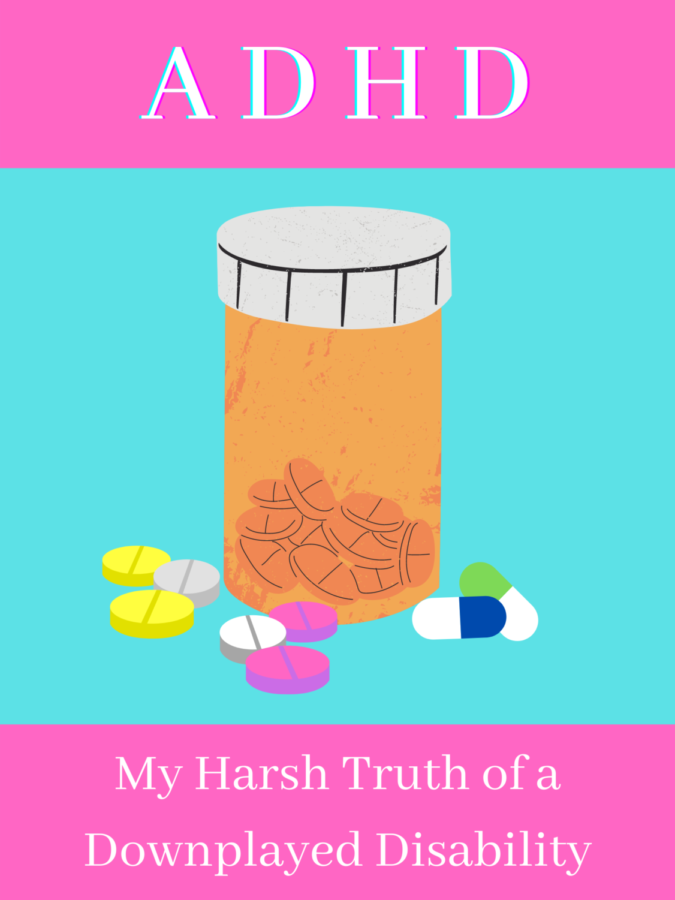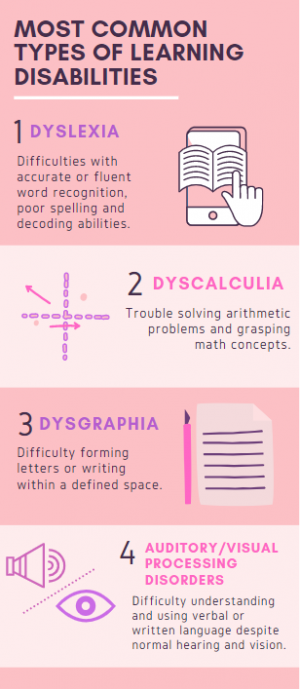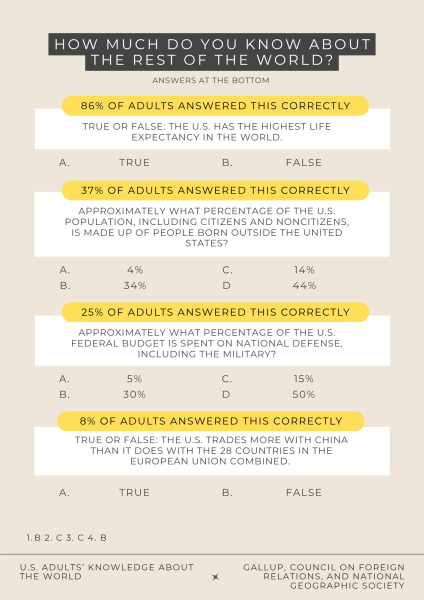Living with ADHD: medical, social struggles need to be recognized
After being diagnosed with ADHD for 10 years, I have learned the many stereotypes people have about me.
“That just sounds like you don’t want to do the work.”
This is a statement I often hear whenever I express my struggles with Attention Deficit Hyperactivity Disorder (ADHD). I’ve heard similar phrases from teachers, coaches, other students and even school administrators, many of whom I had assumed understood learning disabilities.
For those who may not know, ADHD, stated by American Psychiatric Association, is a mental disorder with a range of symptoms, but can fall into three different categories: inattentive, hyperactive/impulsive and combination of both.
Despite being considered a disability, few view ADHD as such, and this extends to almost every mental disability. An experience that all disabled people—whether physically or mentally—can relate to is the false notion that our ailments are somehow not real, and that we have crafted a perfect lie to get out of doing basic tasks.
In fourth grade my teacher took the liberty of assigning me more work than my other classmates, ignoring my Individual’s Education Program (IEP) which lists my legal learning accommodations. When my mother brought this up, my teacher claimed I was using a made-up mental disorder to get out of work, as my grades were good and I always found time to doodle instead. This wasn’t the last time I had a teacher—or anyone for that matter—ignore my diagnosis.
While I can’t dismiss or diminish the helping hand my teachers gave me, from every dual-taught math class I have taken, to my wonderful case manager, there is still a downside. For all the help diagnosed ADHD people may receive, there is twice as much judgment.
Some people have the assumption that ADHD individuals can’t perform simple tasks at all. It’s never outright—it’s the “oh, you’re in that math class…” or the “oh, you aren’t taking any APs.” There’s always that “oh”— a subtle disappointment in the voice of others. It makes the fact that I am different feel shameful, as if I am not seen as smart enough to do the work that everyone else does.
When it comes to ADHD medication, people tend to assume that they are “magic focus pills” that work with no drawbacks; unfortunately, that is not the case as these pills are actually methamphetamines with long term withdrawal side effects. Healthline states that many ADHD medications are designed to increase the dopamine and norepinephrine levels in the brain, which increase the speed that neurotransmitters pass between neurons, allowing the frontal lobe to better focus; however, I found myself lacking emotional connections while on Vyvanse, then when I would go off the pills, I would experience bouts of depression and mood swings that I could almost never control.
ADHD medication is so greatly misunderstood that during one of my club seasons for volleyball, my teammates had a running joke of asking me if they could borrow some of my Vyvanse to help them focus before their tests. It was so repetitive, especially after explaining to my teammates multiple times why joking about it could get me into legal trouble.
Though the medications I have taken are not strong enough to cause severe addiction, mentally I have felt that I needed to take them to survive in school.
Even before I knew who I was, many of the doctors and teachers in my life encouraged me to rely on those pills. Because they saw me as too much effort and energy to deal with, they took the easy way out and medicated me during my formative years, encouraging me to put my mental health on the line. Healthline also states that ADHD medications can cause high blood pressure, and a multitude of heart issues.
Still, I cannot blame any parent for putting their kid on Vyvanse or Adderall, when doctors and teachers are promising parents that their child’s future is in jeopardy unless they take this simple pill.
For all of my life, every little joke others have about me has been said about 1,000 times already. The judgmental back-handed comments that masquerade as advice have stuck with me since childhood, and they certainly do not “fix” my condition. In the end, my disability does not stem from my incompetence, but from society’s inability to accommodate me.
Your donation will support the student journalists of Chantilly High School. Your contribution will allow us to cover our printing and annual website hosting costs.

Blake Jocuns has been a part of The Purple Tide for four years and is now a senior. They are an avid volleyball player and are always striving to get better....












R.J. • Feb 11, 2022 at 3:21 pm
This comment is for the Opinion piece on Living with ADHD , I believe it was contributed by Blake Jocuns, Copy Editor. Ironically, and perhaps it is the subtle hand of kismet, I too was copy editor of my high school yearbook, 17,500 years ago in an era of magic and wonder known as “1999. ”
You did a terrific job articulating the reality of living with ADHD, so poignantly in fact, that I thought not only how insightful and self-aware you must be to have pondered some of these nuances already by your age but that some of them I hadn’t even considered myself in my 39 years and had to stop to think about. I have a doctorate in pharmacology and I also appreciate when effort is made to not misidentify drugs, so a tip of my hat to you for your careful consideration in that regard as well. But it was one thing specifically you mentioned that really struck me that echoed my own experience but wasn’t something I ever really stopped to think about – I too was plagued with the fears about being without the medication at school, which I now understand after years of an unrelated addiction – opiates – (I’m 10 yrs sober now) is very real hallmark of addiction or patterns often seen forming in pre-addiction that prime the brain for addictive potential later. To paraphrase, that lesson that we are only good or our best can only be achieved when we are on our pills, and we internalize that need to take another pill to achieve our greatest potential, that we need to take it todo well, and often times, dangerously easy to bargain with ourselves over – that it is okay in this Machiavellian way to take an extra if it gets us through the test/project/homework. It was something I never realized or paid attention to at the time and was as plain as the nose on my face. Just be vigilant to any controlled or mood-altering substance you cross in life because we have already done the hard part and internalized the psychological aspect of addiction via conditioning is all I would say, but you are very sage, a great writer, and I am happy I ran across your article. Thank you. I think you have a very bright future ahead.